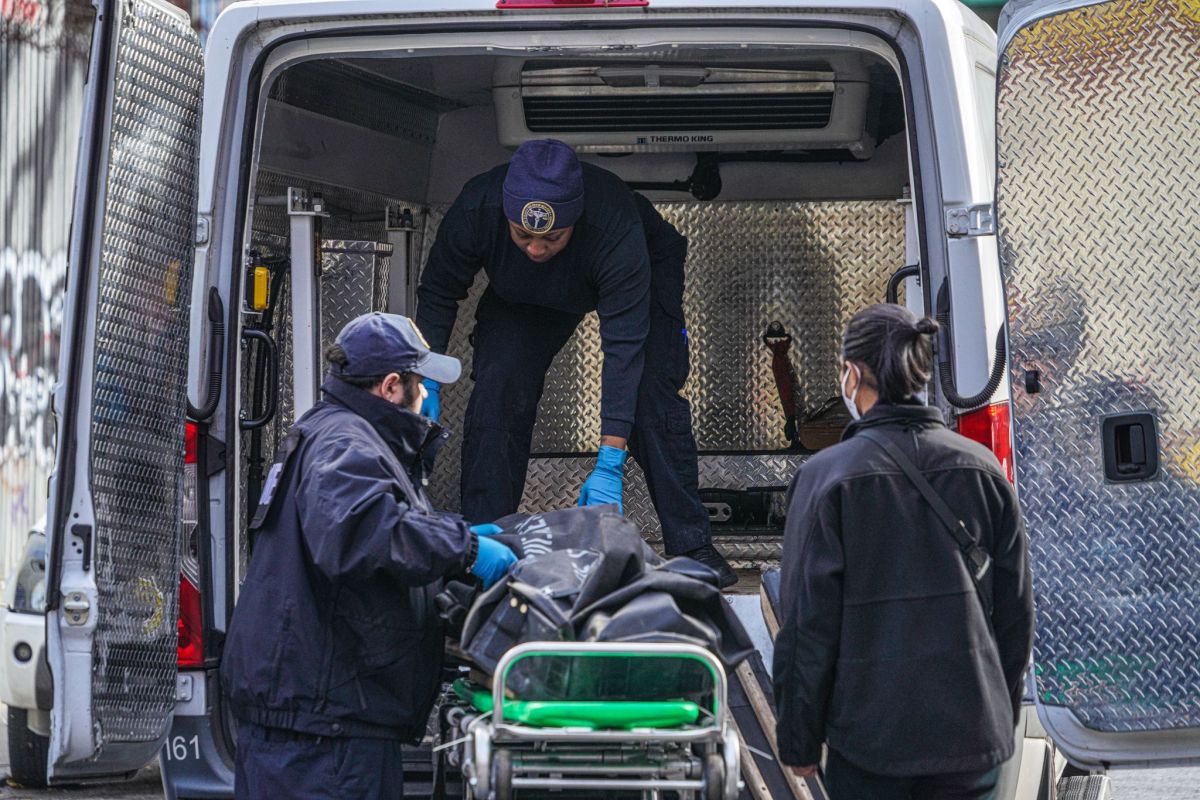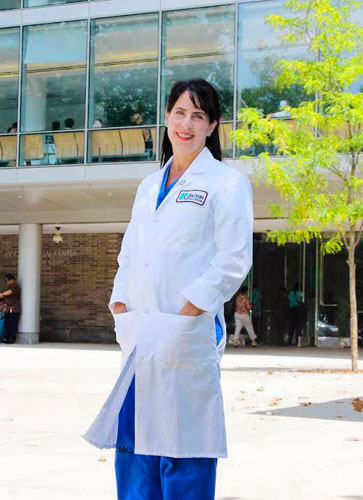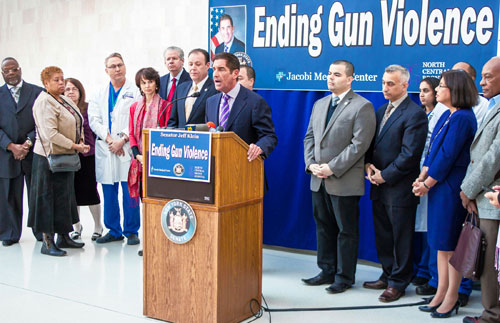Jacobi Medical Center is already ahead of Governor Cuomo.
In his State of the State Speech Jan. 9, he called for more aggressive measures to fight sepsis – a condition where the body’s immune system over-responds to an infection.
Jacobi has already seen much improvement in decreasing the amount of infections that patients acquire during operations, thus fighting sepsis indirectly by limiting the amount of infections that would require immune system responses by patients in the first place, hospital officials said.
The medical center was touting new numbers released by the state Department of Health for 2011 that show a marked decrease in the number of hospital acquired infections by patients as part of a treatment or surgeries inside the facility.
According state Department of Health, Jacobi Medical Center saw a decline in the number of infections acquired during colon and hip replacement surgeries. In terms of “surgical site infections” for colon surgery, the hospital saw a drop to an infection rate of 4.3%, below a state average of 4.9%. The percentage of hip replacement surgeries that resulted in an infection declined from 3.4% in 2010 to none in 2011.
“The numbers don’t lie,” said Bill Walsh, senior vice-president of the North Bronx Healthcare Network, which includes Jacobi. “Due to the proactive efforts of our employees and our administration’s commitment to patient care, we are seeing dramatic downturns in hospital infection rates.”
He said the hospital will “continue to move forward in educating our staff to provide our patients with a safe world class…experience for every visit.”
The Affordable Care Act – also known as “Obamacare” – is changing the medical landscape by at least partially awarding slightly more or less payments to hospitals based on better or worse outcomes, said Dr. Stephan Kamholtz, chairman of medicine at Jacobi and North Central Bronx hospitals.
Jacobi is already taking measures, such as circulating antibiotics in the area around the abdominal cavity during colon surgery, or around the thigh muscle during hip replacement surgery, said Kamholtz.
“It takes a good amount of coordination, and people have made a special effort,” said Kamholtz, who added that Hospital Acquired Infections was an area that Jacobi had focused on improving.
The Leapfrog Group – which rates hospital safety – has recognized Jacobi’s improvements in reducing Hospital Acquired Infections, he said.
Overall, the state Department of Health reported in its fifth annual Report of Hospital Acquired Infections that all hospitals across the state averaged a 13% decline in surgical site infections since 2007 for a basket of types of surgeries measured.
Patrick Rocchio can be reach via e-mail at procchio@cnglocal.com or by phone at (718) 742-3393



















